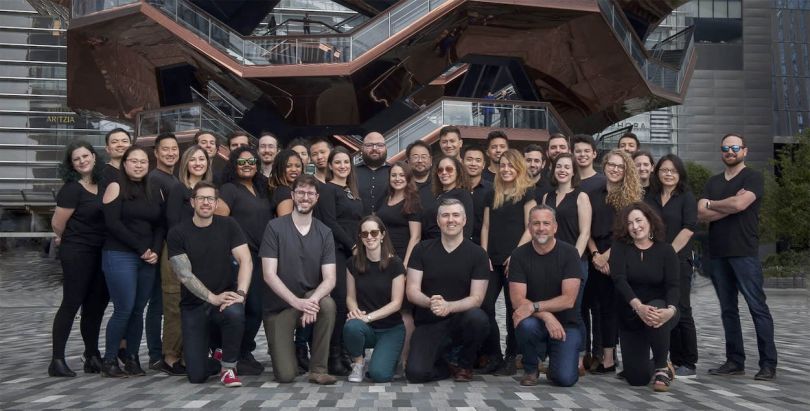
Vericred, an NYC startup aiming to disrupt the health and benefits space, announced Tuesday it closed on a $23 million Series B. The oversubscribed round was led by Aquiline Technology Growth, with participation from a flock of new and existing investors including Echo Health Ventures, MassMutual Ventures and First Health Capital Partners.
Admittedly, health and benefits is a fairly unsexy industry.
“If you talk to folks at a cocktail party about health and benefits, it’s painful. Eyes glaze over. These are not among the top 10 things people like to think about,” Vericred’s co-founder and CEO Michael Levin told Built In.
A key reason for the glazing over, Levin believes, is that it is such an expansive space with “very few standards and very little unanimity.”
Indeed, there are thousands of employee benefits carriers out there, focusing not just on medical, dental and vision, but also things like disability, wellness, life, and pet health. Meanwhile, there are a ton of tech companies looking to digitize these products, to improve the experience for individuals, employers, brokers and even the carriers themselves. The act of having every carrier connect with every tech company individually is simply “untenable,” Levin says.
So, Vericred is the proverbial pipeline between these two camps — the infrastructure that simplifies the otherwise complex exchange of quoting, enrollment and eligibility data that occurs between carriers and their tech partners. Its suite of APIs transmit billions of data points between insurtech companies and carriers, helping power digital distribution across the whole industry.
This isn’t a new concept — Levin likens Vericred’s solution to Plaid, another NYC startup that does something similar in the fintech space. The connectivity Vericred provides is meant to not just foster more transparency and efficiency, but innovation too.
“One of the reasons why there hasn’t been a lot of innovation is because it’s lacked a digital foundation, a digital structure on which to build,” Levin said. “Connectivity,” he continued, “transcends even just the data connectivity. It’s about community, it’s about connecting all these entities and the people there as well.”
Like a lot of other players in the health space, the COVID-19 pandemic served as a “tailwind” for Vericred’s business, according to Levin. Employee benefits carriers who were resisting “leaning into” digital transformation suddenly realized they had no choice but to do so, and the momentum of the carrier side of the company’s platform accelerated dramatically as a result. Levin says he doesn’t foresee this shift dying down anytime soon.
“It’s kind of like a genie,” he said. “Once it goes out of the bottle, you’re not going to get it back in.”
So, Vericred will need to grow accordingly. The company plans to use this fresh funding to more than double its headcount of 50 in the next year, with an emphasis on its sales, marketing and engineering teams.
In addition to the funding Vericred has added two new members to its board of directors: Jessica Zeaske of Echo Health and Max Chee of Aquiline Technology Growth. Chee sees Vericred as a “catalyst for the digital transformation” of the health and benefits industry in the long run.
“Aquiline’s investment in Vericred is rooted in our shared vision of a fully digitally connected employee benefits ecosystem, where plan quoting, enrollment, and renewal is a seamless experience, much like booking travel or applying for a new credit card online,” Chee said in a statement provided to Built In. “We’re pleased to add Vericred as a portfolio company.”




